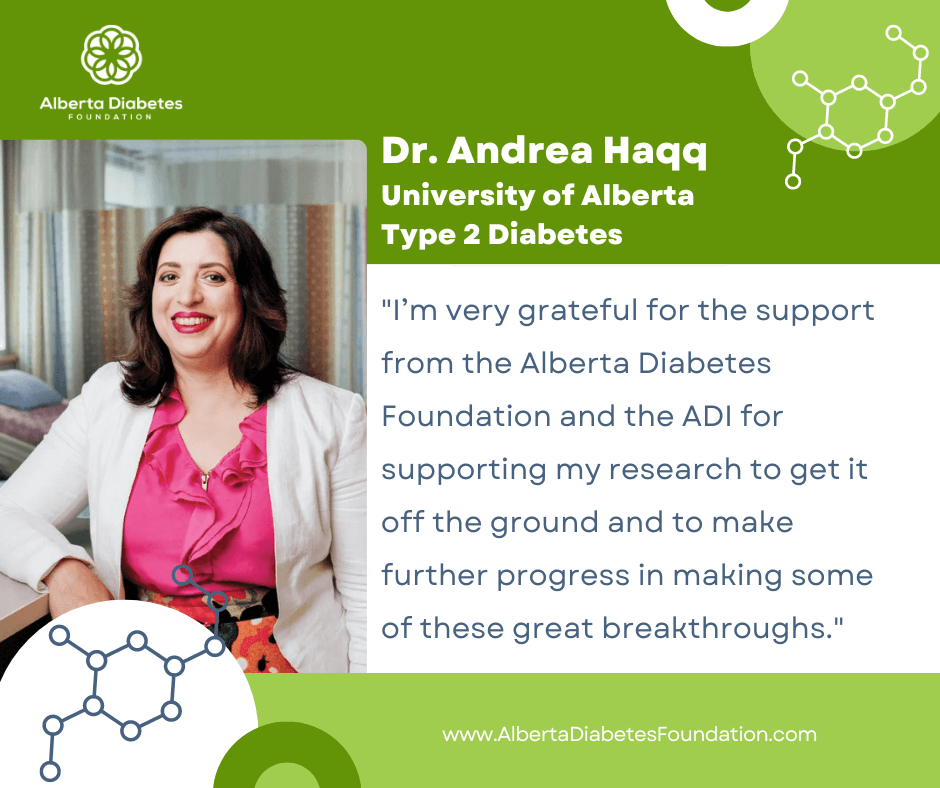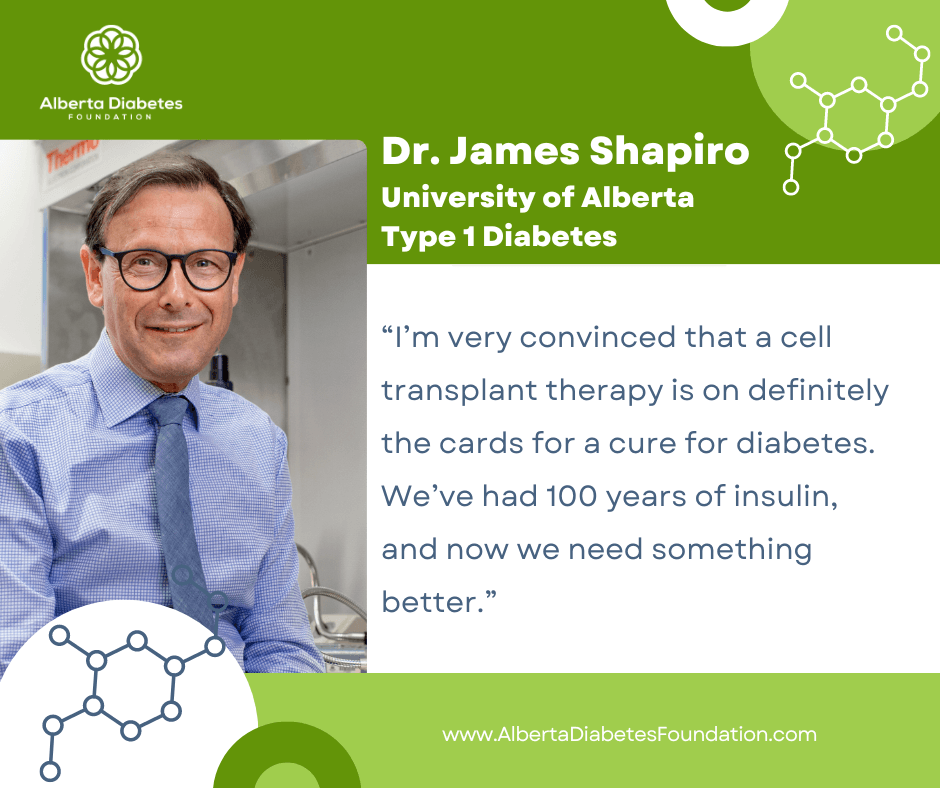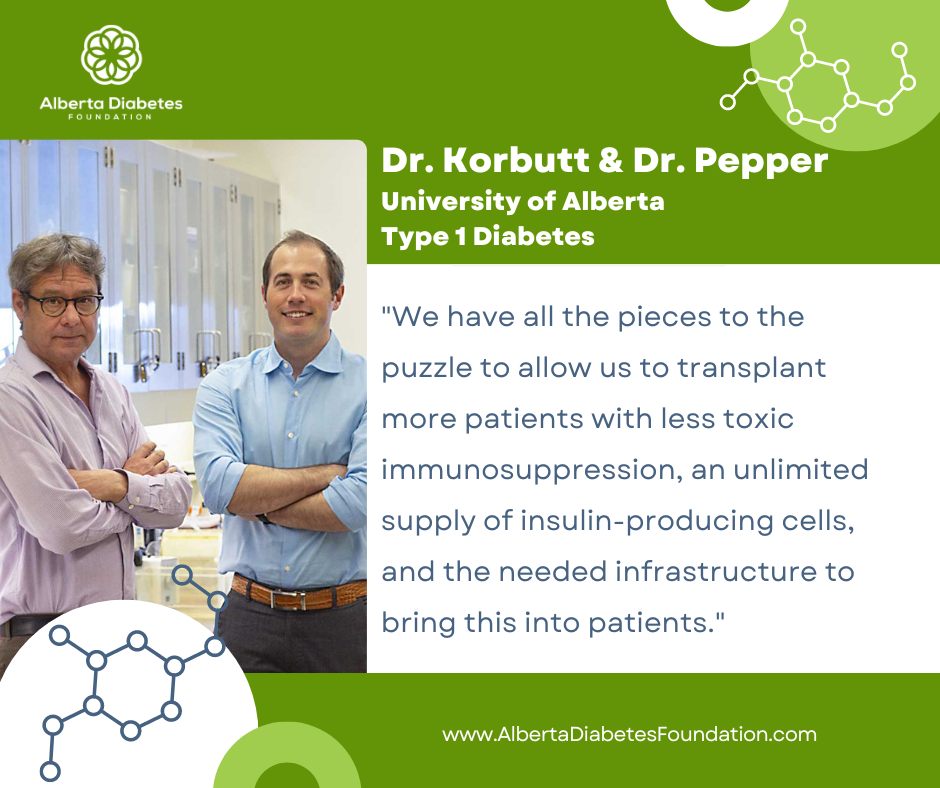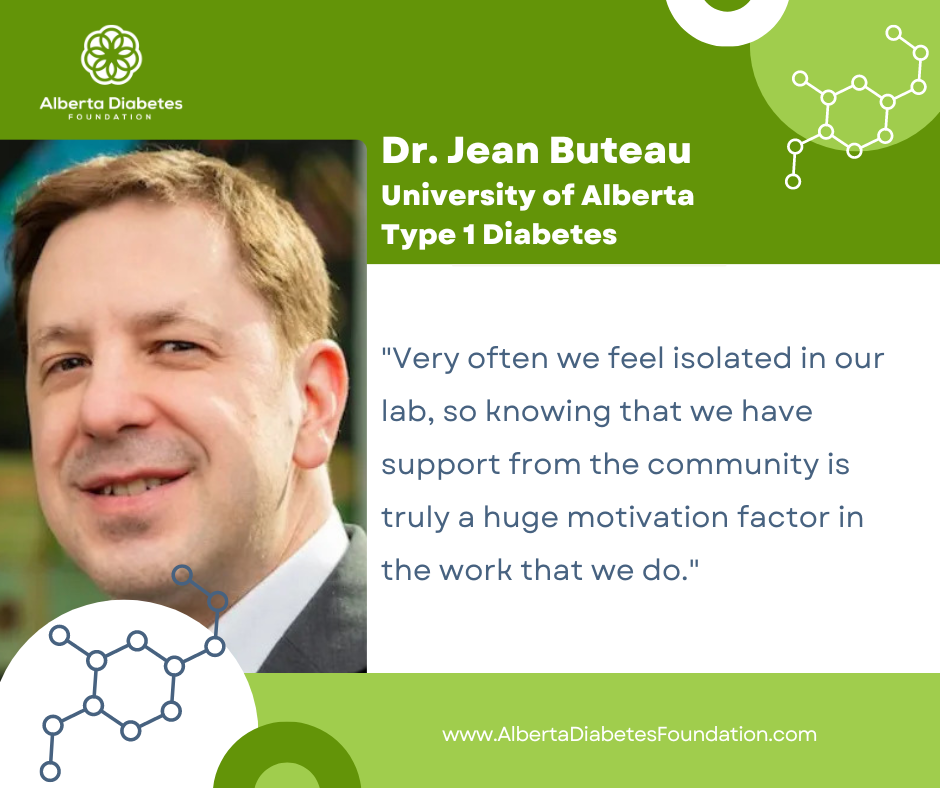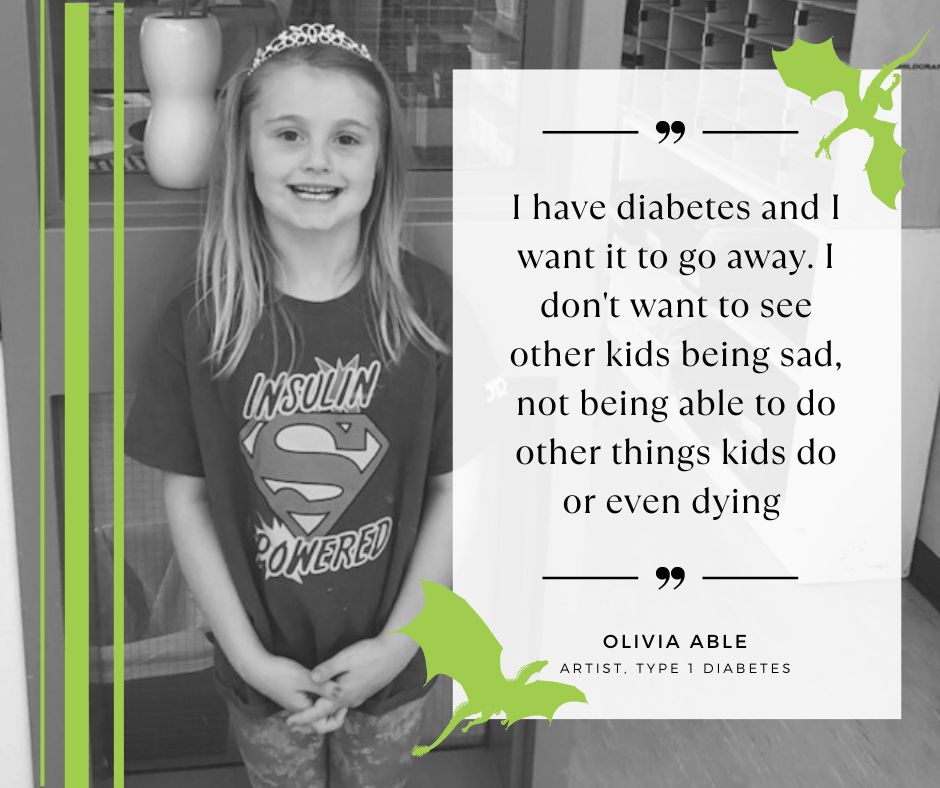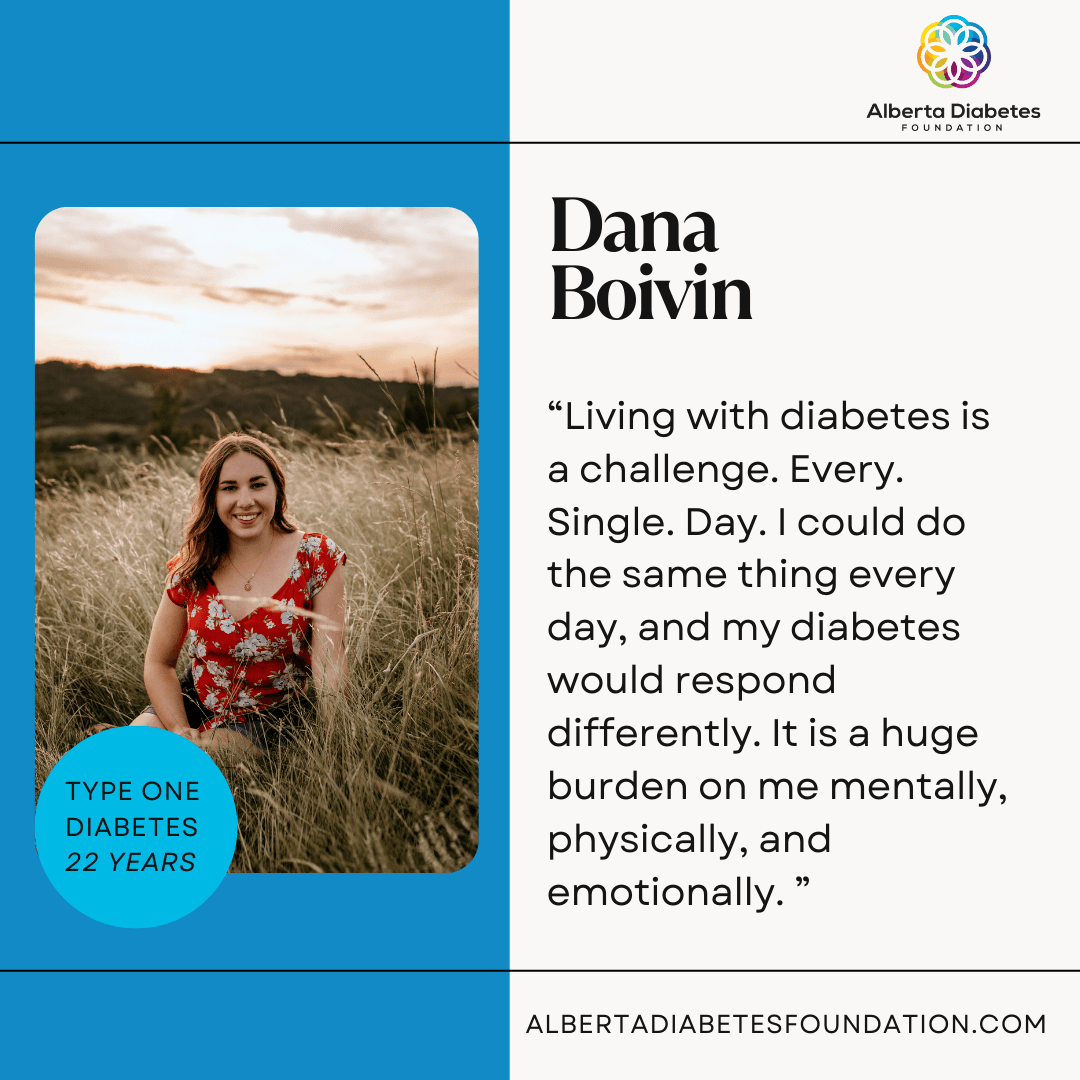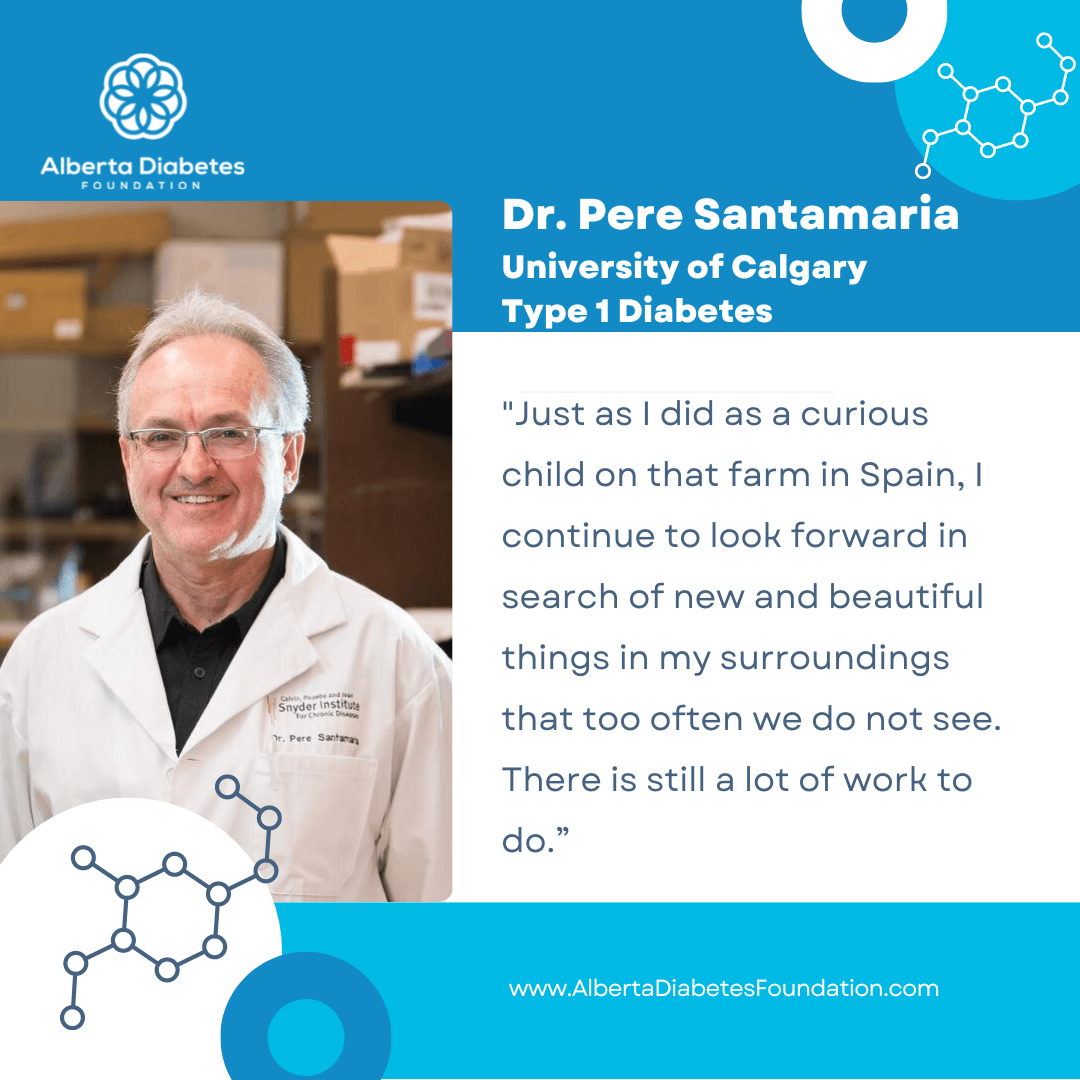Resveratrol: the Superpower
Article by Robyn Braun, PhD
A powerful plant compound treats a range of diseases and drives one scientist to keep searching.

Dr. Jason Dyck didn't set out to study the compound resveratrol, but now he can't get away from it. "I started out as a cardiovascular researcher. But I can't get out of resveratrol because it is effective in the treatment of almost any disease. Whenever we test it, it has tremendous benefit. I can't walk away from something that could be so beneficial," he says.
The Alberta Diabetes Foundation recently funded Dyck's study of the effects of resveratrol on blood glucose levels and insulin levels in obese and insulin-resistant animals. Dyck's research as he pursues the seemingly endless benefits of this organic compound for diabetes and other diseases.
Resveratrol is a compound produced by some plants, including grapes, peanuts and Japanese knotweed, when they are suffering from some form of environmental stress. "When an environment is changing, plants are affected first," explains Dyck. "And under environmental stress they produce resveratrol. The thinking is that animals in the environment will consume the resveratrol in the plants, which effectively supplies them with the compound so that they can handle the environmental stress once it begins to affect them."
The discovery of a compound that would benefit a wide spectrum of diseases was surprising. "Researchers were making plant extracts and idnetifying the components of the extract that were effective and determine what the effects were," says Dyck. "They kept fractionating plant extracts and finally identified resveratrol." The extract was then purified and scientists began to experiment with its effects. The benefits were manifold.
Too Much Buzz
Resveratrol research received a lot of attention when researchers found trace amounts of the beneficial substance in red wine. "People thought the presence of resveratrol in red wine addressed what's called the 'French Paradox,'"explains Dyck. "The franc eat a lot of fat but have low rates of cardiovascular disease. So it was proposed that this was because they also drink a lot of red wine and resveratrol in the wine offsets the potential problems of a high fat diet."
Resveratrol is also an exercise mimetic. That is, Dyck explains, it produces some of the same effects in animal bodies as exercises. His lab published a study where it exercised two groups of rats for 12 weeks. The only difference between the groups was the one that was given resveratrol and the other was not. At the end of 12 weeks, the tea gave the mice a run to exhaustion test. The animals who had taken resveratrol performed 10 to 15 per cent better than the control animals. "To enhance a trained athlete's performance by 10 to 15 per cent for the same amount of work -- that's a big deal," exclaims Dyck.
The paper received a lot of attention and again the link was made to red wine, with headlines claiming that a glass of wine could save you a trip to the gym. "But exercise is not one molecule," explains Dyck, "It's not just one pathway. Resveratrol causes subtle changes across a spectrum of pathways and effects."
Dyck acknowledges that there are minute quantities of resveratrol in red wine but he actively distances himself from the frenzied proclamations of news outlets and social media that a glass of red wine is the equivalent of one hour in the gym, or that drinking wine regularly alleviates the need for a healthy diet. "It was funny for a while," he says of the excitement, "but it's not true and it's frustrating to see our research misused like that."
Resveratrol in useful quantities is now available as a supplement in health food stores. One pill of 150 mg is the equivalent of 100 bottles of wine. "So it's a lot safer to take the supplements," laughs Dyck. Dyck himself takes the supplements before his runs. While he hasn't noticed a difference with his overall health, he has noticed that the supplements make his runs harder. "I would think that if it was a placebo effect I'd have found the runs easier," he muses. "I don't know for sure but maybe it's like altitude training. It's harder to train on resveratrol but you're in better shape as a result." In the short term, there have been not toxicity effects reported from the supplements, says Dyck.
Diabetes Researchs Looks to Resveratrol
Diabetes researchers bean to experiment with resveratrol about 10 years ago and showed that, while taking resveratrol, obese animals had the glucose, blood fat and insulin levels of healthy animals even after they remained obese. "It's very clear from animal trails that resveratrol is very effective at lowering blood glucose levels," says Dyck. "But we didn't really know why."
Around the same time, research emerged that showed the focal transplants from lean animals to obese animals cause the obese mice to become lean. The results of these fecal transplants interested Dyck because he knew that, while resveratrol is effective in the treatment of many diseases, it's not found in the blood stream but passes undigested to the colon. Perhaps, he reasoned, the benefits of the fecal transplant could be enhanced with the addition of resveratrol. And they were.
We don't know how it works exactly," says Dyck, "But the bacteria interact with the resveratrol and then secrete a new compound, which is even more effective then resveratrol on its own." The active compound created by the gut bacteria in the presence of resveratrol looks like a number of anti-diabetic compounds, Dyck says. It reduces hepatic glucose levels and increases insulin levels in the muscle. What's more, it works to regulate blood glucose faster and more profoundly than resveratrol.
Knowing the difference to effect if resveratrol on blood glucose levels and insulin uptake could explain the differences in results that researcher are seeing across different populations. "We are getting consistency good results in animal trials," explains Dyck. "But human trials show mixed results across the populations. "We are getting consistently good results in animals trails," explains Dyck. "But human trails show mixed results across the population." For example, a study of obese insulin-resistant men showed that resveratrol had a positive effect on their blood glucose and insulin levels, but in obese men who were not insulin-resistant, the resveratrol made no difference in their blood glucose levels.
It could be that some populations have the gut bacteria needed to use the resveratrol and some populations do not. "Your diet changes your microflora," says Dyck. "And we know that a high fat diet will change your intestinal profile, which can contribute to insulin resistance or even worsen the condition."
Dyck and his team are working to isolate the effective compound from the fecal material, so that it can be turned into a drug to treat everyone. But is is a slow search. "We're trying different fractions with different sizes of solubility. We're making the haystack smaller so that we can identify the needle."
Time Flies
If the success of resveratrol research to date is anything to judge by, its future is very bright. "We've made tremendous progress in the past decade. We've gone from pipefitting purified resveratrol onto cells grown in dishes through to animal trials and now we're looking at preventing damage from chemotherapy, improving the effects of chemotherapy, preventing hypertension, heart failure and diabetes," says Dyck, enumerating a few of resveratrol's benefits. Interest in resveratrol as a treatment for all kinds of disease has grown significantly,, with more and more papers published every year.
"It's never fast enough for me, though"Dyck says. "I work because it could be a really great treatment. And a patient was not a virtue that was bestowed upon me."
LET'S WORK TOGETHER TO FIND A CURE.
VISIT US
1-020 Li Ka Shing Centre
University of Alberta
Edmonton, AB, T6G 2E1
Office Hours
Monday-Friday 8:30-4:00
If you would like to set up an appointment at our office, please set up an appointment by contacting us at
info@abdiabetes.com


